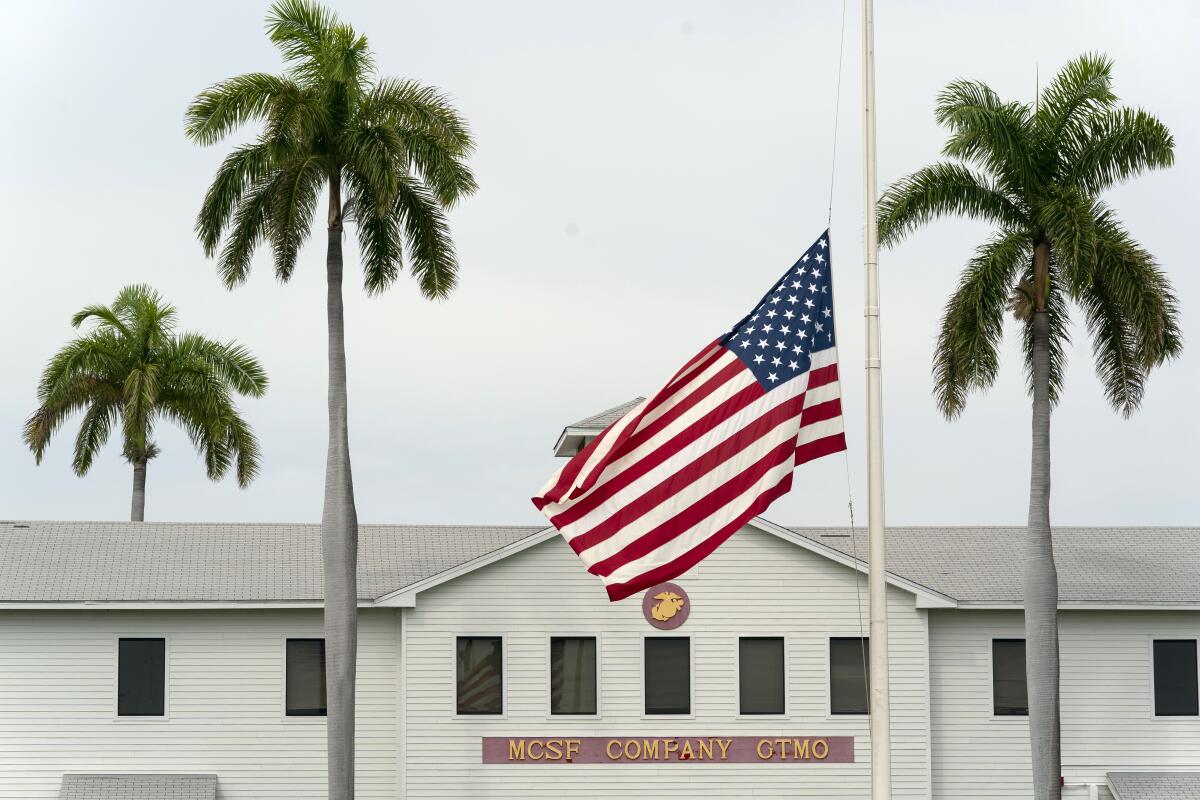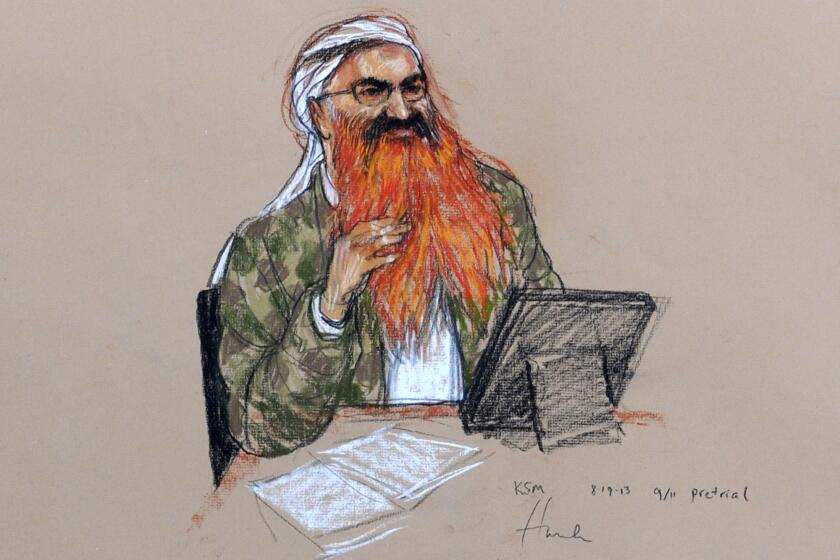After 20 years in Guantanamo, two Pakistanis are released without charges

- Share via
WASHINGTON — U.S. officials returned two Pakistani brothers to their home country Thursday after holding them two decades without charges at the Guantanamo Bay military prison.
Abdul and Mohammed Rabbani were the latest detainees to be released from U.S. custody as Washington moves toward emptying and shutting down the prison. The George W. Bush administration set it up at a U.S. naval base in Cuba for extremist suspects rounded up after the 9/11 attacks on the United States in 2001.
The two brothers were originally transferred to U.S. custody after Pakistani officials arrested them in their home city of Karachi in 2002. U.S. officials accused the two of helping Al Qaeda members with housing and other lower-level logistical support.
The brothers alleged torture while in CIA custody before being transferred to Guantanamo. U.S. military records describe the two as providing little intelligence of value or recanting statements made during interrogations on the grounds that they were obtained by physical abuse.
The U.S. military announced their repatriation in a statement. It gave no immediate information on any conditions set by Pakistan regarding their return there. “The United States appreciates the willingness of the Government of Pakistan and other partners to support ongoing U.S. efforts focused on responsibly reducing the detainee population and ultimately closing the Guantanamo Bay facility,” the Defense Department said.
Guantanamo at its peak in 2003 held about 600 people whom the U.S. considered terrorists. Supporters of using the detention facility for such figures contend that it prevented attacks. Critics say the military detention and courts subverted human and constitutional rights and undermined U.S. standing abroad.
The coming trial of Khalid Shaikh Mohammed before a military commission will focus not on what he did — orchestrate the deaths of 2,973 people — but on the torture inflicted on him as a result.
Thirty-two detainees remain at Guantanamo Bay, including 18 eligible for transfer if stable third-party countries can be found to take them, the Pentagon said. Many are from Yemen, a country considered too plagued with war and extremist groups and too devoid of services for freed Yemeni detainees to be sent there.
Nine of the detainees are defendants in slow-moving military-run tribunals. Two others have been convicted.
More to Read
Sign up for Essential California
The most important California stories and recommendations in your inbox every morning.
You may occasionally receive promotional content from the Los Angeles Times.










